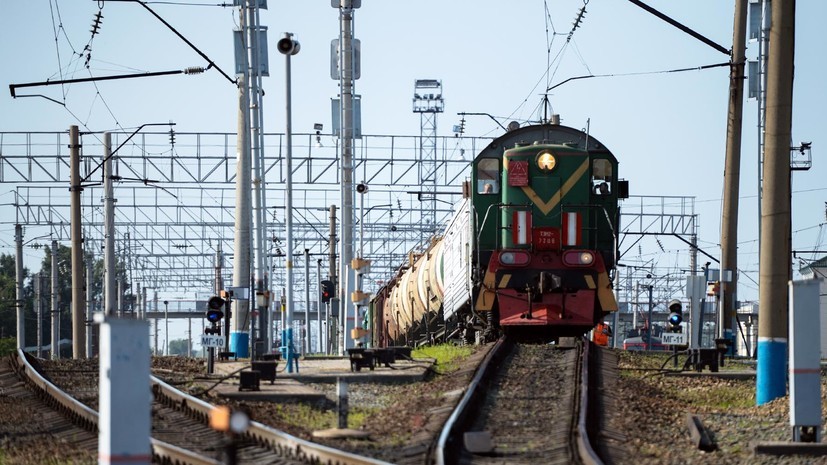Russia won a dispute with Ukraine in the World Trade Organization. Kiev accused Moscow of allegedly unreasonable restriction of imports of rail cars and switch gears of Ukrainian production. On the assurances of the Ukrainian side, this led to serious financial losses. However, the WTO arbitration panel recognized Kiev's claims as unfair. Tass was told about this in the press service of the Ministry of Economic Development of Russia.
"We confirm (that the arbitration of the WTO took the side of the Russian Federation - RT )," the department noted.
Kiev filed a lawsuit against the Russian Federation in October 2015. According to the plaintiff, Russia has since 2013 annulled the certificates of a number of Ukrainian enterprises necessary for the import of wagons and switches, in particular the Kriukov Carriage Works, the Dnipropetrovsk Arrow Plant and the Kharkov Machine-Building Plant. As a result, according to Kyiv's data, the export of corresponding products to the Russian Federation decreased from $ 1.7 billion in 2013 to $ 51 million in the first seven months of 2015.
The fact that Moscow denies the accusations of restricting the activities of Ukrainian enterprises, was said in the Ministry of Economic Development on the day of filing a lawsuit by Ukraine. First Deputy Minister of Economic Development Alexei Likhachev then stressed that independent experts were involved in the analysis of the situation, and all actions will be taken in accordance with the WTO rules.
"The first rapid analysis of this situation by our specialists was carried out, including with the involvement of independent experts. But to develop a strategy and tactics in this matter, you need a little more time. In any case, we will act in accordance with the strict rules of the WTO, "TASS quotes him.
Controversial trade
This is the second trade dispute between the two countries in the WTO, which ended in favor of Moscow. The first lawsuit concerned Ukraine's increase in import duties on the energy carrier ammonium nitrate. In July 2014, Kiev decided to raise anti-dumping duties for five years. Representatives of Russia, filed a lawsuit in the WTO in May 2015, noted that Ukraine, imposing restrictions, was guided by the cost of ammonium nitrate, not on the Russian market, but in the market of the countries of the European Union.

- © Alexander Kryazhev
- RIA News
On July 20, 2018, the arbitration panel found most of the Russian claims justified and stated that these fees do not comply with WTO rules. Moreover, the representatives of the organization recognized that the EU, using the method of energy adjustments to form the price of energy, violates the organization's regulations. The Ministry of Economic Development of the Russian Federation expressed the hope that a similar dispute with the EU would also be resolved in favor of Moscow.
At the same time, in total, four lawsuits on the trade dispute between Russia and Ukraine were submitted to the WTO. Two more lawsuits are currently being considered by the organization.
So, the claims of Kiev concern the transit of Ukrainian goods through the territory of the Russian Federation. According to the Ukrainian position, Russia allegedly unreasonably imposed a restriction on international transit road and rail transport of goods from Ukraine to Kazakhstan and Kyrgyzstan through Russia. At the moment all transportation can be carried out only through Belarus.
The suit brought by Moscow concerns the sanctions imposed by Ukraine and restrictions. Russia disputes more than ten legislative and regulatory acts passed by the president, the government, the parliament and other Ukrainian departments since 2014 against Russian companies.
At the same time, measures to limit the flow of goods from Ukraine in Russia are explained by the need to "protect" the domestic producer. The threat of unfair competition from Ukrainian companies is connected with the creation in 2016 of a zone of duty-free trade between Ukraine and the European Union. Thus, Russian Prime Minister Dmitry Medvedev pointed out that after the formation of the free trade zone between Ukraine and the EU, "there is a threat of re-export of goods from third countries under the guise of Ukrainian" to the CIS countries, with which Kiev also signed an agreement on duty-free import of goods.
"From January 1, 2016, the level of customs and tariff protection will be raised against Ukraine. For it, instead of zero rates of customs duties, the most-favored-nation treatment will begin to operate, "the head of government said at the time.
